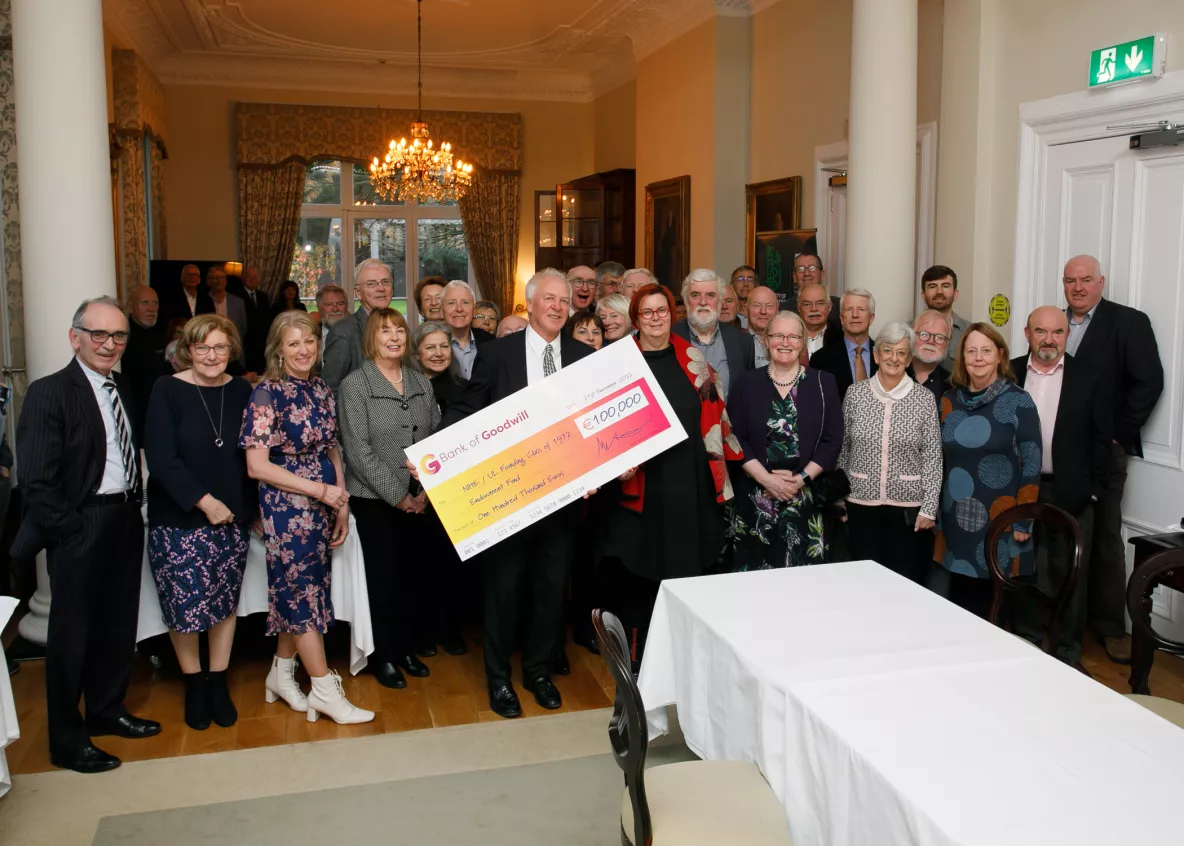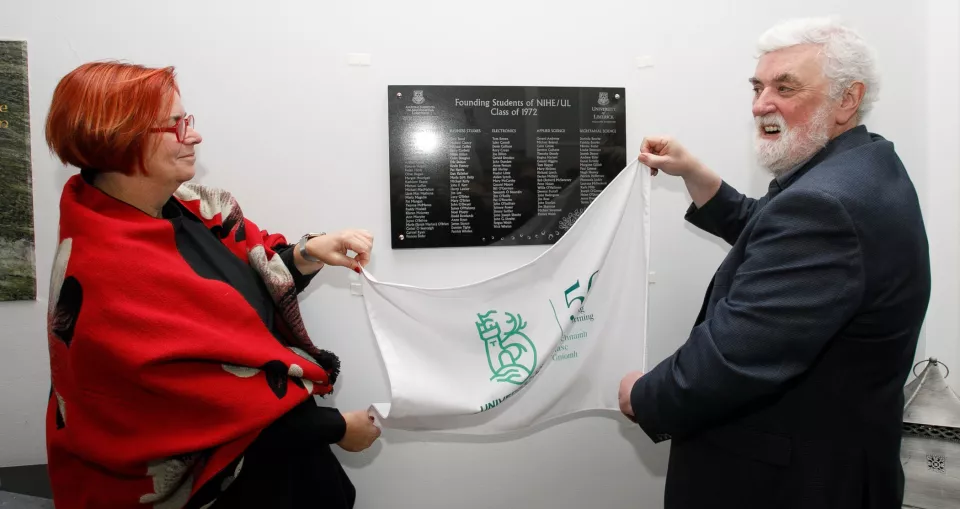

by John Redington, Class of '76
“A scheme with a difference, a scheme based on needs,” was how Access Campus Director Donal O'Leary welcomed the Bursary Scheme set up by the founding students of 1972 as they celebrated University of Limerick's Golden Anniversary in Plassey House last week. €103,000 has already been gathered from the 98 surviving members of the group which will be used by O'Leary's organisation, a partnership between UL and the Limerick Enterprise Development Partnership, to support those who face challenges in accessing education at every stage all the way up from pre-school.
“This allows us to extend our support into third-level education, to allow those who, due to circumstances, cannot travel the full journey. Unlike other schemes based on ability, this is focused solely on those who would never be able to attend college without the financial assistance this bursary gives.”
As she unveiled a plaque naming all the students who enrolled in the then National Institute for Higher Education in September 1972, UL President Kerstin Mey referenced not only their pioneering spirit that got Ireland's first technology-based university off the ground but also their generosity and their pride in their alma mater in giving back some of the benefits they gained to another generation.
“A cohort of 114 brave trailblazing learners allowed UL to begin, grow and thrive to a student community that now numbers over 18,000 and that has seen more than 118,000 graduates pass through its doors in the intervening years. And in keeping with the theme of their commitment fifty years ago, it gives me great pleasure to see these founding students now launching an endowment fund to give something back to those coming after them. The chance to go to university is still nothing more than a dream for some of our citizens but this fund will allow a number of them achieve their goals and live out their dreams.”

Spokesman for the founding students, Castleconnell man Paddy Meskell explained the background which led to setting up the fund. “Looking back to 1972, I’m not sure that we were always aware that we were playing a critical role in the transformation of Irish education and so the transformation of Irish society. But we did have this sense, sometimes vague, that we were a special and unique band, entrusted with this huge responsibility and carrying the expectations of our families and communities on our shoulders. So what better way to add an extra dimension to our legacy than help transform the lives of some of today's young people and their families?”
Access Campus, who will be administering the bursaries, is a partnership between UL and the Limerick Enterprise Development Partnership that has been supporting those who face challenges in accessing education at every stage all the way up from pre-school. Based in the old Krups building on Roxborough Road since its foundation twenty years ago, it has concentrated on tackling educational disadvantage at all levels, not just through financial assistance but also by providing those who wish to avail of its services the social, family, community, teaching and specialist support needed to sustain the commitment to education.
Having started out with homework clubs, it has extended its activities over the years to cover as much of the range as possible of the backup those already in education take for granted. Included in its partnership ethos is the voluntary involvement of UL undergraduates in providing tutorial assistance as well the placement of students to assist in the identification of learning difficulties such as dyslexia which, if not dealt with, can turn a child's learning experience into a challenge or even an impossibility.
Meskell sees the €103,000 already collected for the fund as a start rather than as an end in itself. “Not only are we hoping for some ongoing contributions from our existing donors but we will also be pitching to those who graduated after us. If the idea catches on with the following fifty years of graduates, we can provide bursaries over four years which give meaningful assistance to a significant number of those who would not otherwise have been able to progress to third-level education.”
 Student Centre (SU-101)
Student Centre (SU-101)
University of Limerick
Limerick, Ireland
Phone: 353 61 202475
Email: ulaa@ul.ie